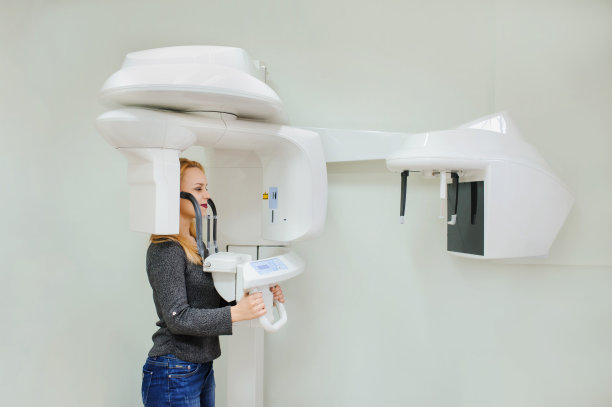Exploring the Advantages and Innovations of Dental Implants for Restoring Smiles and Enhancing Oral Health
Summary: Dental implants have revolutionized the way oral health issues are addressed, providing lasting solutions for tooth loss. With advancements in technology, dental implants offer a myriad of benefits that enhance the quality of life and oral functionality. This article explores four key aspects of dental implants: their structural advantages, innovative techniques used in their placement, the impact on oral health, and the emotional and psychological benefits they provide. By delving into these areas, we uncover how dental implants restore not only smiles but also confidence, making them a vital choice for modern dental care.
1. Structural Advantages of Dental Implants

Dental implants are primarily composed of a titanium post that is surgically placed into the jawbone, acting as a root for a replacement tooth. This structure mimics natural tooth roots, providing stability and durability that other tooth replacement options, such as dentures or bridges, cannot offer. The integration of the implant with the jawbone, known as osseointegration, ensures that the implant becomes a part of the body. This means it can withstand the forces of chewing and biting effectively, offering improved function.
Moreover, dental implants help in preventing bone loss that often occurs when a tooth is missing. The pressure exerted on the jawbone during chewing is crucial for maintaining its density and structure. Unlike dentures, which can slip and lead to bone deterioration, implants stimulate the bone in a way that promotes healthy growth and preservation. This not only enhances oral health but also maintains facial structure, avoiding the sunken look that can occur from missing teeth.
Furthermore, dental implants allow for more flexibility in treatment options. With advancements in implant materials and techniques, they can be customized to fit individual patient needs, making them a viable option for most people. This adaptability is a significant advantage, offering a tailored approach to dental restoration.
2. Innovative Techniques for Implant Placement
The process of dental implant placement has been significantly refined over the years due to technological innovations. Techniques such as 3D imaging and computer-guided surgery have revolutionized how dentists plan and execute implant procedures. These technologies allow for precise mapping of the patients mouth, enabling dental professionals to strategize the perfect position for implants, minimizing recovery time and improving overall outcomes.
Another innovative technique is the use of immediate load implants, which allow patients to receive temporary crowns placed on the same day as the implant surgery. This approach enhances recovery and improves patient satisfaction, as the traditional long waiting period of several months for osseointegration can be discouraging.
Additionally, the rise of mini dental implants offers a less invasive alternative, suitable for patients with smaller jawbones or those who are not candidates for traditional implants. These smaller implants are easier to place and can often be utilized to support dentures. Innovative procedures such as this widen the scope of who can benefit from implant technology, making it more accessible.
3. Impact on Oral and Overall Health
The positive influence of dental implants on oral health cannot be overstated. By filling the gaps left by missing teeth, implants prevent adjacent teeth from shifting out of place, thus maintaining proper alignment and bite. This stability can significantly reduce the likelihood of dental issues such as tooth decay and gum disease, which can arise when teeth are misaligned.
Additionally, dental implants can improve oral hygiene practices. Unlike traditional bridges, which require altering adjacent teeth, implants stand independently and are easier to clean. Patients with implants can maintain regular oral hygiene routines without special considerations, promoting better long-term oral care habits.
Beyond the mouth, there is growing awareness of the link between oral health and overall health. Conditions such as diabetes and heart disease have been associated with poor oral health. By restoring oral functions and preventing complications, dental implants contribute to the overall well-being of patients, allowing for a healthier lifestyle free from the anxiety of dental issues.
4. Emotional and Psychological Benefits of Dental Implants
One of the most significant yet often overlooked advantages of dental implants is the psychological boost they provide. The loss of teeth can adversely affect a person’s self-esteem and confidence, leading to social withdrawal and mental distress. By restoring a natural-looking smile, dental implants allow individuals to regain their self-assurance and feel more comfortable in social settings.
Patients often report feeling younger and more vibrant after receiving dental implants. The aesthetic enhancement of restoring a full smile allows for more engagement in social activities, improving quality of life. This psychological benefit is profound, demonstrating that dental health is closely linked to emotional health.
Moreover, the permanence of dental implants versus temporary solutions like dentures provides peace of mind. Knowing that they have a stable, long-lasting solution contributes to a sense of security and happiness, paving the way for a more fulfilling life.
Summary: Through exploring the advantages and innovations of dental implants, it is evident that these dental solutions offer much more than restoring physical appearance; they enhance oral health, provide advanced technological benefits, and bolster emotional well-being. The profound impact of dental implants on individuals lives underscores their importance in modern dentistry, encouraging those with dental concerns to consider this innovative option.
This article is compiled by Vickong Dental and the content is for reference only.


